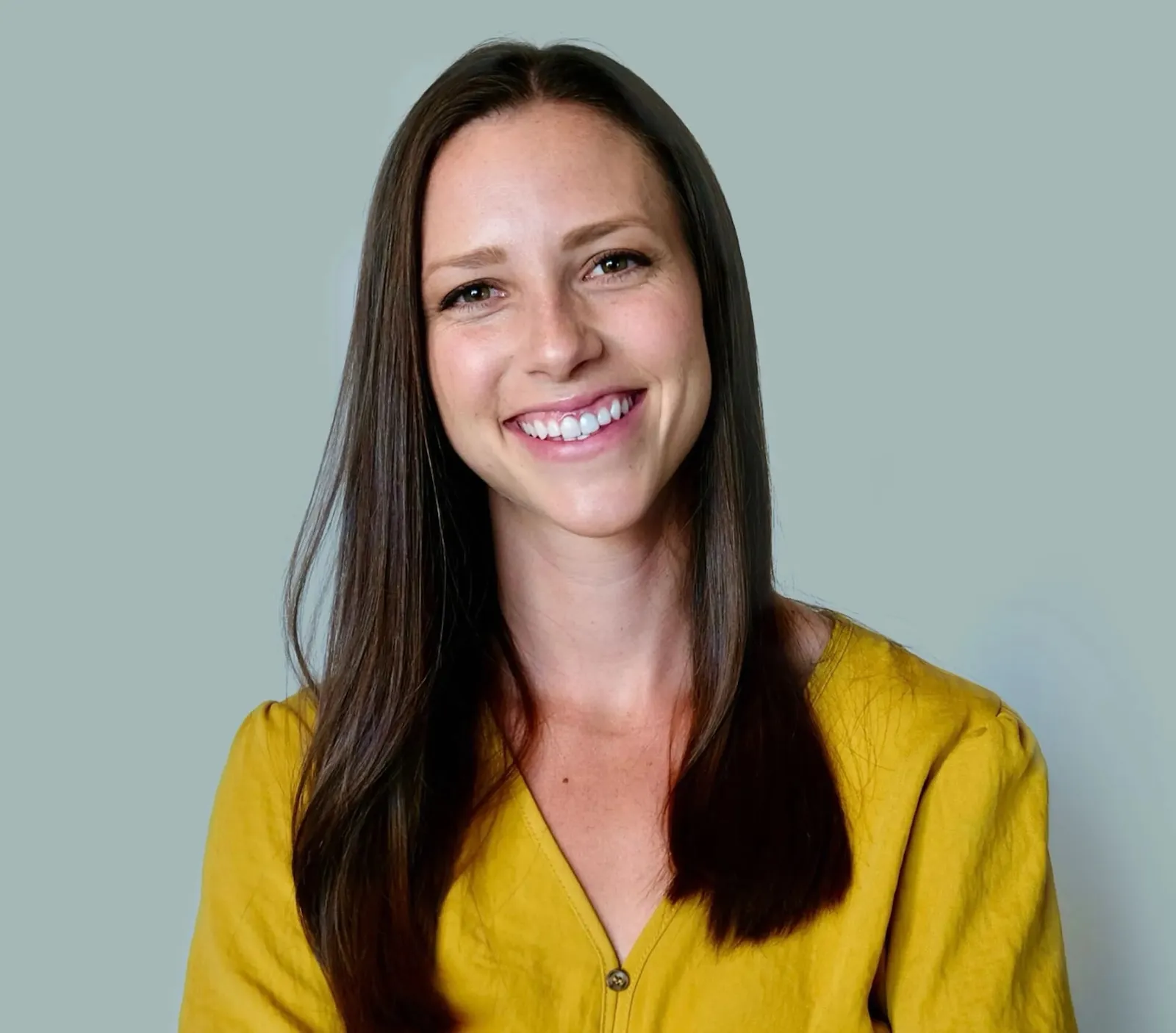How to Find a Nutritionist: A Step-by-Step Guide

Key Takeways
Starting the journey to better understand your individual nutrition needs calls for celebration since the road will undoubtedly prove rewarding but might be challenging at times. Learning, and ultimately changing, your habits can be a daunting challenge that might be best braved with some help along the way.
After all, what you put into your body can drastically affect your health that necessitates expert advice. Whether it’s in reaction to a new diagnosis, coping with a chronic condition, or learning how to treat your body the best way you can for your lifestyle and goals, there’s a specialist out there to match your circumstances.
Some of those specialists will match your needs better than others, and how to tell them apart can be a chore in its own right. Dietitians and nutritionists aren’t necessarily the same thing, and the vast array of qualifications, certifications, and specialties can turn anyone’s stomach.
In this article, we’ll explain how you can find the best specialist for you and the most helpful questions to bring to them so you can start strong.
Sources To Consult When Looking for a Dietitian

Ask Your Doctor For a Recommendation
The most obvious source of a dietitian or nutritionist referral will be your doctor. They’ll already have your medical history and a good understanding of your personal dietary needs and goals to match with one or more qualified professionals.
Depending on your particular insurance coverage, requirements you may have no choice but to seek a doctor’s referral anyway, as some plan types prohibit subscribers directly accessing a specialist before consulting their primary care physician.
Online Access to Dietitians and Nutritionists
For those without reliable access to a doctor, or otherwise appreciate the freedom to shop around for themselves, any and every dietitian and nutritionist can be found somewhere online. Simply searching for “dietitian” or “nutritionist” and the name of your city will return a results list, and likely an associated map, of local specialists for you to browse at your convenience.
Without a whole lot of attached information beyond some dubious ratings and reviews, that may become a little overwhelming. To help target your needs, sites like healthgrades.com and eatright.org afford you much deeper details on professionals in your area.
If you’re worried about finding someone covered by your insurance, your plan’s provider will offer a similar tool on their website, too! If web searches aren’t cutting it, or you want a more interactive approach to your nutrition journey, your phone’s app store will have thousands of apps to meet even the most esoteric dietary needs.
Like the Nutrisense app, some even provide direct access to dietitians or nutritionists to start advising you right away and have helped some leading nutrition experts hone their approaches and habits. Remember that you’re not limited to just searching for a nutrition specialist online - your whole experience may be suited to being entirely behind the screen.
The recent pandemic has strengthened many existing online resources connecting medical professionals to clients, effectively eliminating the need to live locally to whoever you choose to work with. Most dietitians and nutritionists may not ever need to see you in person for your whole treatment schedule, except for some specific diagnoses and disorders.
{{rich-text-cta-3="/style-guide"}}
Health Departments
Oft forgotten, your state’s public health department website can be considered a trusted resource among the sea of questionable articles and social media. If you belong to a health program like WIC or your child is enrolled in public school and has special dietary considerations, your health department will work through their dietitians and nutritionists to best suit your needs.
If you’ve already received a recommendation to a specialist, many health departments include a tool on their website to verify their license for free quickly. This is especially useful considering the many different certification bodies and state requirements that govern nutritionists. Try finding your city or county health department website within your state’s main health department website.
Colleges and Universities with Diet and Nutrition Departments
Going straight to the source of where nutrition professionals learn their trade can be a convenient, and economical, place to find someone right for your dietary needs. If you’re already enrolled in a college or university with a health or nutrition department, you may be able to consult the faculty directly. Otherwise, the on-site healthcare services of your campus may provide dietitian and nutritionist support to students, often at discounted rates.
Credentials to Look For When Finding Your Next Dietitian or Nutritionist

Primary Education
Anyone with a legitimate dietitian or nutritionist credential will have earned at least a bachelor’s degree, if not a master’s or even doctoral degree. What that degree is in, however, doesn’t necessarily define how qualified a specialist is. A dietitian will have a degree in dietetics, but often you’ll find a nutritionist who will have a degree in a nutrition or health science-related field, but this won’t always be the case.
Indeed, a nutrition professional with a specific degree may be a little more suited to your particular needs. Someone with an education in sports medicine may better compliment your fitness and training goals, for instance. Beyond the degree, most valuable credentials come as dietitian or nutritionist certifications, which we discuss in detail next.
Job Title and Certification
Understandably, the overlap between the duties of dietitian and nutritionist leads them to be often interchanged. However, the jobs are indeed distinct from each other, dictated by the type of certification earned by the person claiming the title and separated by some specific areas of focus:
Both registered nutritionists and dietitians will have a college degree and be certified by the Academy of Nutrition and Dietetics (AND) and have the title of Registered Dietitian (RD) or Registered Dietitian Nutritionist (RDN). Those who specifically identify as dietitians typically focus on clients with specific dietary disorders or medical diagnoses requiring food and nutrition therapy. At the same time, registered nutritionists may offer more generalized advice on healthy eating.
Describing nutritionists who aren’t RDs or RDNs is a bit more complicated. They too must have a college degree and can be certified by either the Clinical Nutrition Certification Board (CNCB) if they are a Certified Clinical Nutritionist (CCN), or the Board for Certification of Nutrition Specialists (BCNS) if they are a Certified Nutrition Specialist (CNS).
Both titles imply a practice of working with clients to address their nutrition needs for their goals. Still, a CNS will have more advanced education and will usually have a more specific specialization. An RD or RDN may choose to further their qualifications by additionally pursuing either of these certifications.
Be wary, as “nutritionist” is an unregulated term, and only individuals with a certification from any of the above authorities may describe themselves as a “registered” nutritionist. Otherwise, anyone is allowed to describe themselves as a nutritionist without certifying themselves.
Being unregistered doesn’t necessarily disqualify someone from providing accurate advice - specific nutrition science certifications unrelated to those described above include plenty of proper nutrition training - but only specialists with the certifications listed above are permitted to give nutrition advice in a medical context.
Since it’s an unregulated term, different U.S. states consider who and who isn’t a nutritionist differently and judge what advice they can legally provide. With this interactive map, you can check out your state's requirements on dietitians and nutritionists (certified or not).
Whoever your specialist is, you may verify their certification credentials at this site if they’re an RD or RDN. If they’re certified through other means, you’ll be able to verify their license on your state’s health department website.

Six Questions To Ask a Dietitian or Nutritionist (Before You Work With Them)
1) What’s Your Specialty?
If you’re going through the trouble of spending time with, and paying for, a nutrition professional, it’d be wise to invest the time figuring out if they’re the best fit for your needs. A dietitian is more likely to treat severe disorders and may be overkill for your diet goals.
Likewise, a particular nutritionist may choose to serve those honing in on their fitness and training plans and might not know the best strategies for vegan or holistic meal planning. Figuring out what type of client you are and who your specialist most often serves beforehand will save you time and money.
2) Where Do You Get Your Nutrition Information?
This shouldn’t be too hard of a question for real professionals, but it can be a convenient discriminator against those without a legitimate certification. If what they say doesn’t match up to anything credible after looking it up for yourself, it may be an excellent indicator to move onto another choice.
3) What Does a Typical Session With You Look Like?
Knowing what you’re getting into ahead of your sessions may help you envision the whole road of your treatment, which may make it easier to commit to and quell any initial anxiety. That preemptive preparation should also help you hit the ground running each session without wasting any time.
4) How Many Sessions Should I Expect?
If you have an extended fitness goal or have been diagnosed with a diet-related disorder, expect to treat visits with your specialist as an ongoing investment. Even routine treatment plans will include follow-up sessions to monitor your progress and identify any adverse effects.
5) How Much Do You Charge, And Are Your Services Covered By Insurance?
Any medical service provider will be able to provide an itemized list of their services and the cost associated with them. Asking this of your specialist will allow you to compare what you want from them against your insurance plan, shielding you from unforeseen charges.
Understand that finding the right specialist for you will be a balancing act depending on your plan type (e.g., HMO, PPO, etc.), your referral, and if your specialist is in your insurance plan’s network.
6) Can You Personalize My Treatment to My Goals and Lifestyle?
You may only need basic advice and planning services from a specialist, but others may need help personalizing their advice to their specific circumstances over an unbounded time period. Some specialists may price this differently depending on the level of customization they apply, potentially costing more or falling outside of your insurance coverage.
Get 1:1 Nutrition Support with Nutrisense
If you're looking for trusted nutrition guidance tailored to your unique health needs, working with a personal nutritionist is a great option. Nutrisense's team of highly qualified nutritionists and registered dietitians can support you in creating healthy, sustainable habits and creating a meal plan tailored to your individual goals.
Learn more about personalized nutrition support with Nutrisense and how you can get started on your wellness journey today.
Find the right Nutrisense programto turn insight into progress.
Go Beyond Glucose Data with Nutrisense
Your glucose can significantly impact how your body feels and functions. That’s why stable levels are an important factor in supporting overall wellbeing. But viewing glucose isn't enough. Nutrisense, you’ll be able to learn how to use your body's data to make informed lifestyle choices that support healthy living.
One-to-one coaching
Sign up to access insurance-covered video calls to work with a glucose expert: a personal registered dietitian or certified nutritionist who will help tailor your lifestyle and diet to your goals.
Monitor and measure what matters
With the Nutrisense CGM Program, you can monitor your glucose with health tech like glucose biosensors and continuous glucose monitor (CGM)s, and analyze the trends over time with the Nutrisense App. This will help you make the most informed choices about the foods you consume and their impact on your health.
Find your best fit
Ready to take the first step? Start with our quiz to find the right Nutrisense program to help you take control.

Kara Collier is a registered dietitian nutritionist and certified nutrition support clinician who is passionate about reshaping how we approach prevention, behavior change, and metabolic health. A Forbes 30 Under 30 honoree, she’s helped over 150,000 people improve their metabolic health using tools like continuous glucose monitors and behavior-focused nutrition strategies. Kara has been featured by Forbes, UC Berkeley, and HLTH, and has appeared on top podcasts like Mind Pump and The Genius Life.




